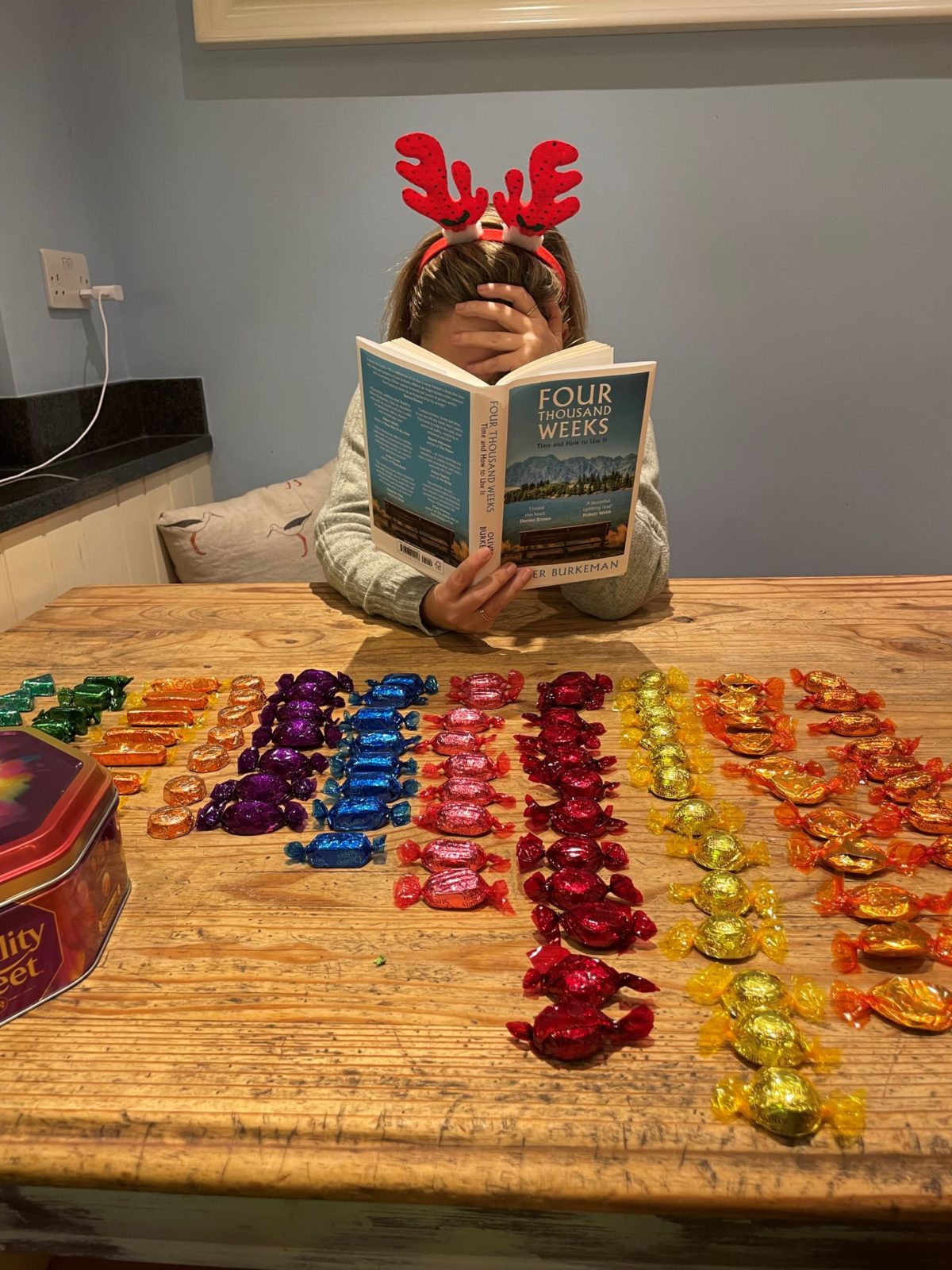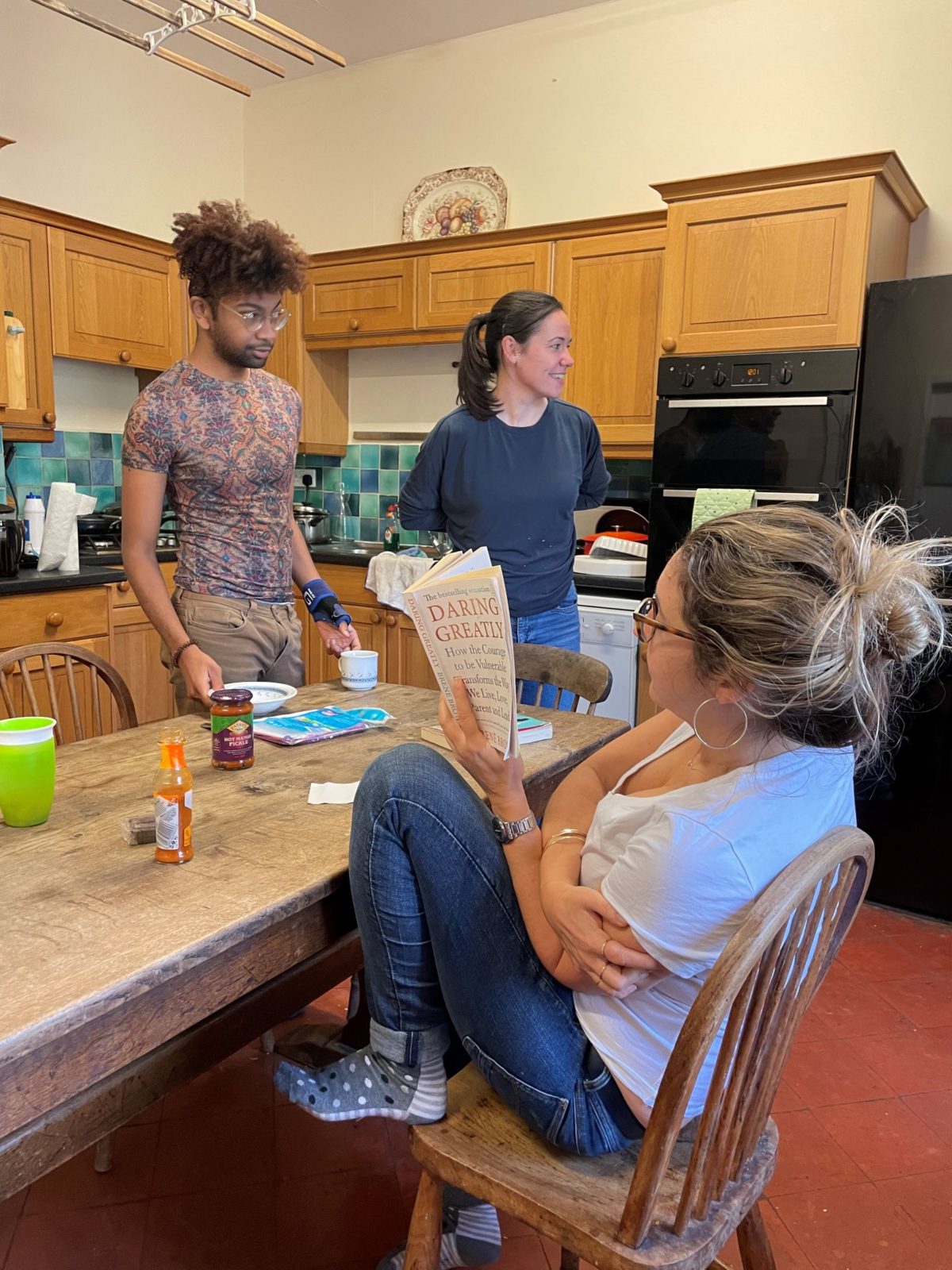FOUR THOUSAND WEEKS is the average human life span, and this book deals with how it is we can accept this horrifying fact.
It’s a book about time management, but not in the usual sense, of how you can fit more into the time you have. Rather, he says what is important is to accept that you will never do everything, and learn to find that a relief, rather than a regret. Here he is:
. . . philosophers from Ancient Greece to the present day have taken the brevity of life to be the defining problem of human existence: we’ve been granted the mental capacities to make almost infinitely ambitious plans, yet practically no time at all to put them into action.
He thinks that our usual approach to time management, which is to be as productive as possible, is essentially us running away from the great truth that no matter how hard we work, or how much we want to, we will never get round to even a tiny fraction of everything that is possible for us. It is much better, in his view, to accept this up front:
Since hard choices are unavoidable, what matters is learning to make them consciously, deciding what to focus on and what to neglect, rather then letting them get made by default – or deceiving yourself that, with enough hard work and the right time management tricks, you might not have to make them at all.
He advises us, to ‘pay ourselves first,’ that is, do what you want to do first, and be comfortable that other things will slip (e.g., spend the first hour of the day on whatever is your most important priority). Second, he advises us to limit our ‘to-do’s, so we don’t kid ourselves we can do everything; and third, and most challengingly, to avoid our ‘middling’ priorities. If you made a list of 1 to 25 of your priorities, he thinks you should focus on numbers 1 to 5, and then carefully avoid numbers 6 to 25, because they are the really dangerous ones – the ‘second-best’ options that could end up eating up your life.
There is clearly much to think about in this book, but it was this observation that really struck me:
One of the puzzling lessons I have learned is that, more often than not, I do not feel like doing most of the things that need doing. I’m not just speaking about cleaning the toilet bowl or doing my tax returns. I’m referring to those things I genuinely desire to accomplish.
In his view, a lot of what feels unpleasant – for example, boredom, or procrastination- comes from the fact that we do not like to encounter our finitude. He thinks that often when we are struggling to concentrate on something we want to do, and turn to our phone, it is because it is deeply unpleasant to face up to the fact that this thing that matters a great deal to you is now real: like, it may not be as good as you hoped, it might fail, etc etc, and that is very painful.
However:
If you plan to spend some of your four thousand weeks doing what matters most to you, then at some point you’re just going to have to start doing it.
And:
You have to choose a few things, sacrifice everything else, and deal with the inevitable sense of loss that results
There you have it. This book certainly gave me plenty to think about, and unfortunately I seem to mostly think about it when I wake up at 3am. Always a great time for considering your life choices.
Side point, he refers to a fantastic time management book from 1908, called HOW TO LIVE YOUR LIFE ON TWENTY FOUR HOURS A DAY. I loved this book in my early twenties. If you’d still like to take a go at fitting everything in, then I recommend it.


